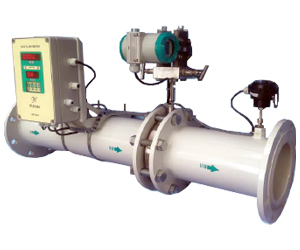Gas Flow Meter Supplier
A gas flow meter is a device used to measure the volume or mass of a gas that passes through it. They are widely used in industries where gases such as natural gas, air, or nitrogen are involved. The type of gas flow meter you choose depends on factors like the gas properties, flow range, required accuracy, and specific application.
Here are some common types of gas flow meters:
1. Thermal Mass Flow Meters: Measure the heat dissipation caused by gas flow. These are ideal for low flow rates and provide high accuracy for mass flow measurement.
2. Turbine Flow Meters: Have a rotor inside that rotates when gas flows through it. The speed of the rotor is proportional to the flow rate. Suitable for clean and moderate to high flow rates.
3. Ultrasonic Flow Meters: Use sound waves to determine the flow rate of the gas. They are non-intrusive and suitable for large pipelines and high flow rates.
4. Coriolis Flow Meters: Measure mass flow by detecting changes in vibration of a tube caused by gas flow. These are highly accurate for both mass and density measurements but tend to be more expensive.
5. Differential Pressure Flow Meters (Orifice, Venturi, Nozzle): Use pressure drop across an obstruction in the flow path to measure flow rate. Common for a wide range of gas types and flow conditions.
6. Rotameters: These are simple devices that use a float within a tube to indicate the flow rate based on the gas’s velocity.
PRINCIPAL ADVANTAGES : :
1. High Accuracy: Gas flow meters, especially thermal mass, ultrasonic, and Coriolis meters, offer precise measurements of gas flow rates.
2. Wide Application Range: Gas flow meters can handle various gas types and flow rates, from very low (small leaks or lab measurements) to extremely high (large pipelines in industrial plants).
3. Versatility: Many gas flow meters, especially multi-technology ones like ultrasonic and Coriolis meters, can measure a wide range of gases, such as air, nitrogen, hydrogen, methane, and steam.
4. Low Maintenance: Non-mechanical flow meters like ultrasonic and thermal mass flow meters have no moving parts, reducing wear and tear and extending their lifespan.
5. Energy Efficiency: Accurate gas measurement ensures that energy is used efficiently in processes such as heating, combustion, and power generation.
Application:
1. Energy : Natural gas flow meters are used to manage the supply and distribution of natural gas, which impacts energy production and supply chain efficiency.
2. Manufacturing : Natural gas flow meters help ensure that natural gas is used safely and effectively as a fuel or raw material.
3. Utilities: Natural gas flow meters are used for billing purposes and to ensure that customers are charged correctly for their gas usage.

